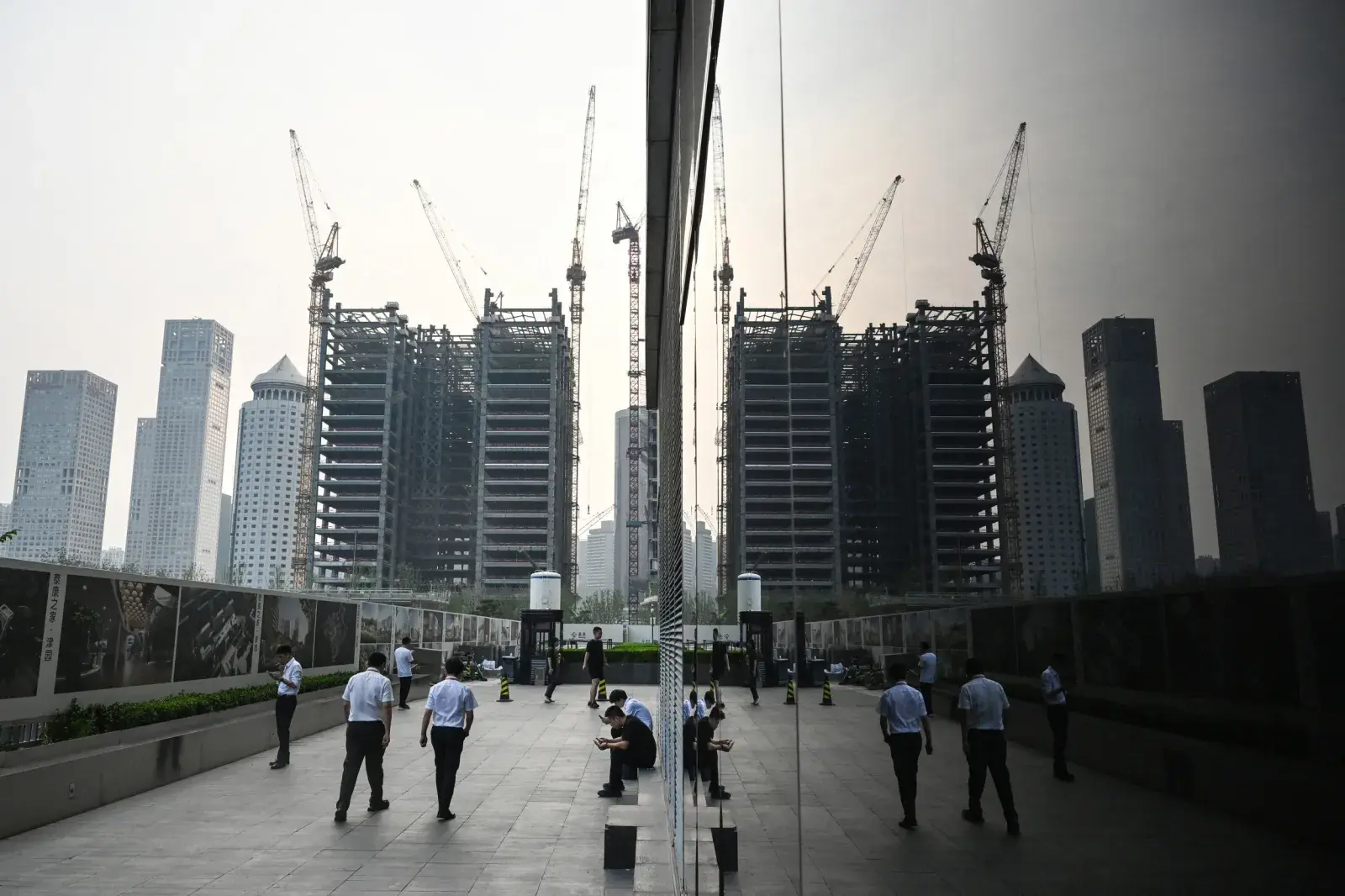China’s property market is showing signs of continued weakness, with home sales declining sharply after brief recoveries in the nation’s largest cities. Analysts say the slump reflects a combination of economic uncertainty, regulatory pressures, and lingering concerns over household debt, putting further strain on developers and threatening broader financial stability.
Recent data from China’s National Bureau of Statistics indicates that new home sales in major urban centers — including Beijing, Shanghai, and Shenzhen — softened after months of modest easing, while smaller cities continue to face steeper declines. The slowdown comes despite government efforts to stabilize the market through interest-rate cuts, relaxed mortgage rules, and incentives for first-time buyers.
The Sales Slump
In September 2025, total home sales by value fell 7.8% year-over-year, according to property data providers, after a temporary rebound in the top-tier cities earlier in the year. Volumes in smaller and mid-sized cities fell even more sharply, suggesting that the broader housing market remains fragile.
Economists note that while policy easing in major cities led to temporary spikes in activity, the underlying structural challenges — high property prices, household debt, and limited consumer confidence — are preventing sustained recovery.
“Sales in the top-tier cities are recovering sporadically, but these gains are fragile,” said Li Wei, a real estate analyst in Beijing. “Smaller cities are facing oversupply, and developers are under increasing pressure to reduce inventories.”
Government Measures and Their Limits
Chinese authorities have introduced several measures in 2025 to boost the housing market, including:
- Lower Mortgage Rates: Reducing interest rates for first-time buyers to stimulate demand.
- Relaxed Down-Payment Rules: Encouraging young and middle-income buyers to enter the market.
- Financial Support for Developers: Providing liquidity to prevent defaults among cash-strapped property firms.
While these steps have supported top-tier cities, they have had limited impact in lower-tier markets, where slower urbanization, population declines, and high vacancy rates weigh heavily on demand.
Impact on Developers
The continued sales slump has intensified challenges for developers already struggling with debt and liquidity issues. Companies that relied on rapid sales to finance ongoing construction now face cash shortfalls, delayed projects, and growing risk of default.
Major property groups, including Evergrande and Country Garden, remain under close market scrutiny, with investors monitoring their ability to meet obligations and complete unfinished projects. Analysts warn that prolonged weakness in home sales could trigger ripple effects across China’s financial system, affecting banks, suppliers, and local governments that rely on property taxes and land sales for revenue.
Consumer Confidence and Household Behavior
A key factor behind the sales slump is weak consumer confidence. Many potential buyers are hesitant to commit to high-priced homes amid concerns over job security, rising living costs, and uncertainty about the housing market’s trajectory.
Younger buyers, in particular, are often deterred by:
- High mortgage payments relative to income.
- Limited appreciation potential in overbuilt markets.
- Concerns about market volatility and declining home values.
This cautious sentiment has translated into slower transaction volumes, even when government incentives are offered.
Regional Disparities
China’s housing market is increasingly bifurcated:
- Top-Tier Cities: Beijing, Shanghai, Shenzhen, and Guangzhou have seen temporary stabilization, supported by policy easing and strong demand from wealthier buyers.
- Second- and Third-Tier Cities: These markets continue to struggle, with oversupply, weaker local economies, and demographic challenges suppressing sales.
“The property slowdown is no longer just a developer problem; it’s a nationwide issue with regional variations,” said Zhang Hui, chief economist at a Shanghai-based investment firm. “Policymakers face the challenge of balancing support for distressed markets with the risk of inflating bubbles in top-tier cities.”
Market Outlook
Most analysts expect China’s home sales to remain soft for the remainder of 2025, with modest improvements limited to major urban centers. Recovery in lower-tier cities may take years, requiring not only policy support but also broader economic stabilization, population growth, and structural reforms in the housing sector.
Potential scenarios include:
- Gradual Recovery: Policy support stabilizes sales in key markets, while over time, household confidence improves.
- Prolonged Slump: Weak demand persists, further straining developers, leading to project delays and potential defaults.
- Targeted Intervention: Authorities could introduce measures such as subsidies, tax incentives, or selective home-buying programs to revive lower-tier markets.
Investors and buyers alike are watching closely, as the housing sector represents a significant portion of China’s GDP, with implications for employment, consumption, and financial markets.
Conclusion
China’s housing market faces a complex mix of challenges. While policy easing has temporarily supported sales in top-tier cities, the broader market continues to struggle, particularly in smaller and mid-sized cities. Developers face liquidity pressures, buyers remain cautious, and regional disparities are widening.
The slump highlights the structural risks in China’s real estate sector and the delicate balance policymakers must strike to stabilize the market without creating new imbalances. As the year progresses, the trajectory of home sales will be a critical indicator of both consumer confidence and broader economic health in China.







